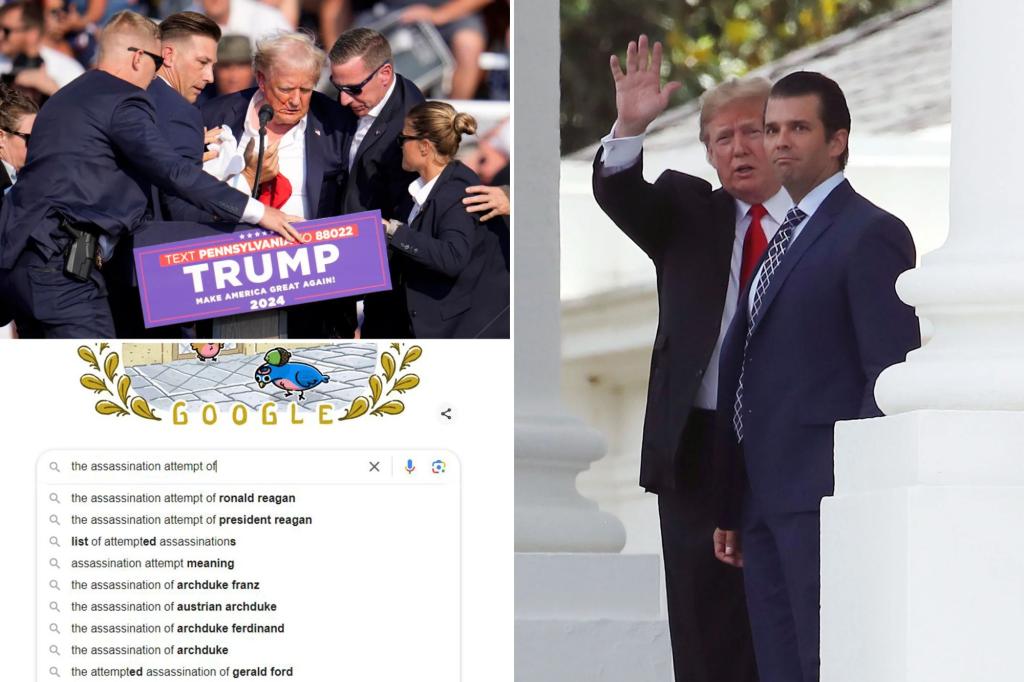Google leaves out Trump assassination search suggestions.
Google, the world’s leading search engine, is once again at the center of controversy. This time, it’s about the Autocomplete feature and its seemingly biased behavior towards former President Donald Trump.
Reports have emerged recently that Google is omitting suggestions related to “Trump assassination” when users type in those keywords in the search bar. This has sparked outrage among Trump supporters and conservatives, who see it as a deliberate attempt to suppress negative information about the former president.
The Autocomplete feature is designed to provide users with quick suggestions based on the most popular searches related to the keywords they enter. It’s meant to make the search process faster and more efficient. However, in this case, it seems that Google is actively censoring certain search terms for political reasons.
This isn’t the first time Google has been accused of biased behavior. In the past, the company has faced criticism for allegedly favoring liberal-leaning websites and suppressing conservative viewpoints in its search results. The latest incident only adds fuel to the fire and raises questions about the true extent of Google’s influence over the flow of information on the internet.
Many are calling for greater transparency and accountability from Google. They argue that a company that controls such a large share of the search engine market should be held to a higher standard when it comes to neutrality and fairness. If Google is indeed manipulating search results for political reasons, it could have far-reaching implications for the democratic process and the freedom of information.
Some experts believe that Google’s behavior is symptomatic of a larger problem in the tech industry. They argue that big tech companies have amassed too much power and influence, and they are using it to further their own political agendas. If left unchecked, these companies could essentially control what information we have access to and shape our beliefs and opinions in ways we may not even be aware of.
It’s clear that the issue of online censorship and bias is not going away anytime soon. As more and more of our lives move online, the question of who controls the flow of information becomes increasingly important. Google’s latest controversy is just the tip of the iceberg, and there are likely many more instances of similar behavior happening behind the scenes.
Ultimately, it will be up to lawmakers, regulators, and everyday internet users to hold big tech companies accountable for their actions. The future of free speech and open discourse online may depend on it. For now, all we can do is stay informed, be vigilant, and demand transparency and fairness from those who control the platforms we use every day.
As the controversy surrounding Google’s Autocomplete feature continues to unfold, one thing is clear: the battle for control over the flow of information online is far from over. The stakes are high, and the consequences of allowing censorship and bias to go unchecked could be dire. It’s up to all of us to ensure that the internet remains a free and open space for the exchange of ideas and information, now and in the future.








